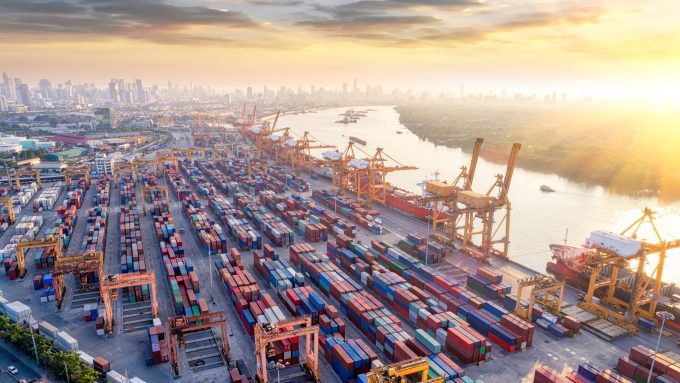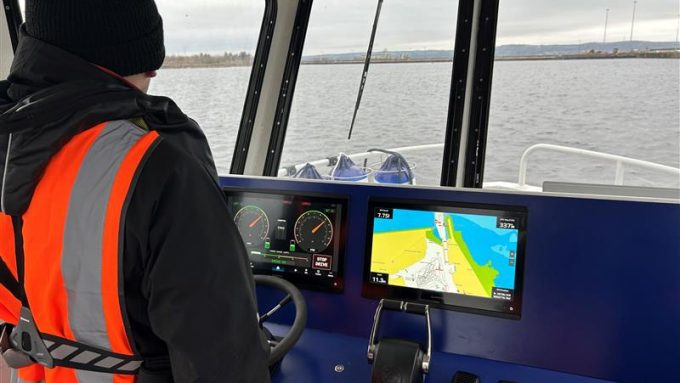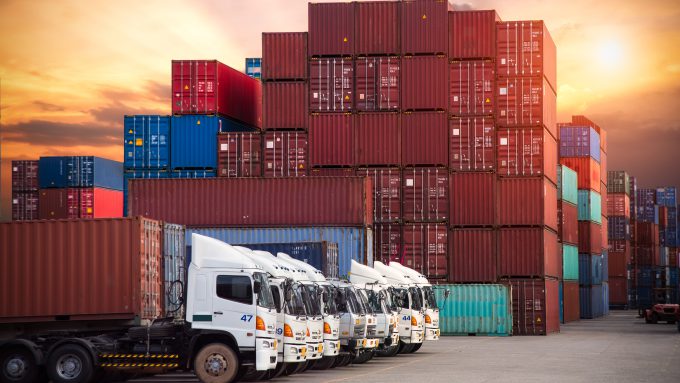
Professor Chris Smith: Green maritime ambitions need greater focus

Britain’s maritime industry should look to the automotive and aviation sectors for inspiration on how to accelerate its transition towards lower carbon fuels.
Both of these sectors have forged ahead with plans for decarbonisation, and provide a good model for the once in a lifetime transition that maritime faces in the coming 25 years to move it towards zero emissions and net zero.
Innovation in the automotive field is well supported by the Advanced Propulsion Centre (APC), and developments in aviation are championed by the Aerospace Technology Institute (ATI). Both organisations are doing good work to encourage the greater take-up of more sustainable fuels, identify opportunities to create new jobs and improve economic performance in their areas, and have great communication with national government.
To my mind, our maritime sector would benefit enormously in its switch to lower carbon technologies by having a similar overarching body able to discuss government strategy and policy and support for innovation.
Right now we could be missing opportunities for UK innovators and businesses in securing parts of emerging markets in clean propulsion, and risk falling behind our European neighbours such as the Netherlands.
Recently, the UK became eligible to bid into the Horizon programme which includes considerable support for maritime innovation via the ‘Zero Emission Waterborne Transport’ partnership. It is time for UK businesses and innovators to warm up existing links – and create new ones – with EU partners for upcoming Horizon calls.
Producing and using green energy must remain important areas of focus for the UK as we transition away from fossil fuels; such as supporting the growth of offshore wind energy via clean propulsion support vessels, and with clean fishing and ferry vessels. The new ‘green corridor’ between the Netherlands and the UK should help drive new avenues for clean propulsion in short sea shipping. Under the new International Maritime Organization’s guidelines, UK vessels – and all other European countries’ vessels – should achieve 40% decarbonisation by 2030.
It’s critical to remember that maritime underpins much of the UK economy; but also that green electricity supplied to your home cannot be truly green if the vessels supporting wind turbines out at sea are powered using diesel engines.
Leadership within maritime is vital to help coordinate the demand for clean propulsion and innovation and supply chain growth to satisfy it. A newly created Maritime Strategic Advisory Group in Connected Places Catapult could help to provide some of that leadership, which is essential because we have thousands of small operators working in our sector who need to come together; unlike in automotive or aerospace which have far fewer – but much larger – corporations who often work more easily with each other to realise common ambitions.

From wind, steam and diesel to cleaner fuels
The need for a greener and more sustainable maritime sector is accelerating fast: for several hundred years vessels relied on wind, and the transition to coal fired steam engines took arguably around 100 years. When diesel came along, the transition was perhaps faster, lasting less than 50 years.
Whether we like it or not, we must complete the change from diesel to methods of cleaner propulsion – of probably many different flavours such as battery electric, hydrogen or e-methanol – and that work will need to complete within the next two decades to meet environmental targets. This summer, the International Maritime Organization set some very stretching targets, for instance decarbonisation of 40% (versus 2008 emissions) by 2030. Countries are being driven very hard by this, which means opportunities for UK businesses to supply vessels and systems to the rest of the world.
It is certainly going to be a massive challenge because there are many large, heavy and expensive items of maritime engineering all over the world, especially ships and the infrastructure in ports and harbours that support them, that will all require changing or upgrading in a relatively short timescale.
To help achieve the switch, the UK maritime sector needs people with the right skills. Like most nations, we don’t have enough of these people – including professional engineers who can design vessels and propulsion systems, and maintenance crews monitoring propulsion systems.
Welcome interventions made
I’m happy to say the Government is listening to the sector, and last year’s launch of a £206 million UK SHORE initiative to tackle emissions in maritime is welcome. There are also several regions of the country that are doing well in developing sustainable maritime capabilities; such as the North East and the South West of England.
But we need to ensure that all of our maritime activities are co-ordinated much better; there is so much to be gained in working together, rather than regions competing with each other to develop new technology.
I recognise that maritime is a small sector compared to automotive or aviation, but it is also one that is developing fast. Every single person I talk to in the maritime sector knows of the need for cleaner mobility and the importance of a just transition. But everyone in this area – from engine manufacturers to shipbuilders; ports to Government – needs to work more closely together and in a more streamlined way to ensure the transition to more sustainable fuels is swift, and we can win the right level of investment.
* Chris Smith is Professor of Mechanical Engineering at the University of Exeter, Director of the Centre for Future Clean Mobility, and is an Ambassador for Connected Places Catapult; part of its new Affiliates Network.
Connected Places Catapult is taking part in Maritime Innovation Week from 7 - 9 November and is hosting a Maritime Growth Summit on 30 November in Liverpool.





